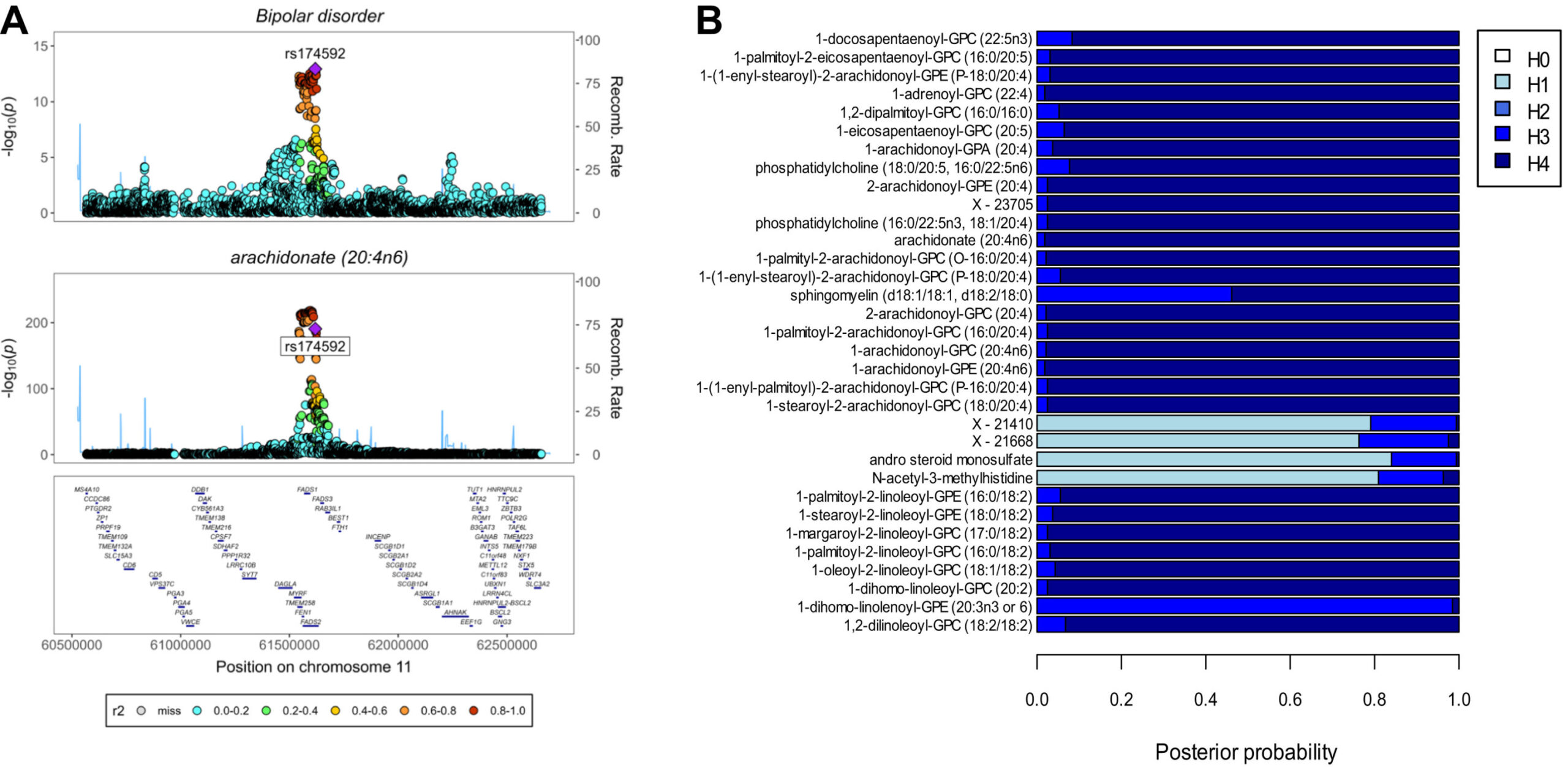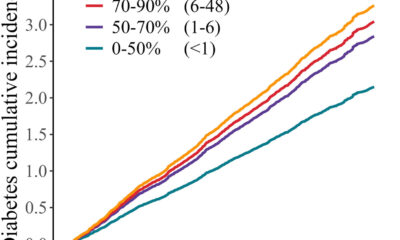Health
Omega-6 fatty acids may reduce the risk of bipolar disorder, research suggests

The genome-wide signal of significant bipolar disorder (BPD) in the FADS1/2/3 cluster shares the same genetic etiology with 27 of the 33 metabolites tested, including arachidonic acid. (A) Regional association plot centered on the FADS1/2/3 locus showing the signals of BPD (top) and arachidonic acid (bottom). The BPD sentinel variant, rs174592, is indicated. (B) Stacked bar chart showing the posterior probabilities of H0 (no causal variant), H1 (only causal variant for BPD), H2 (only causal variant for metabolite), H3 (2 different causal variants) and H4 (1 shared causal variant) returned by Coloc. Credit: Biological Psychiatry (2024). DOI: 10.1016/j.biopsych.2024.02.1005
Omega-6 fatty acids, commonly found in eggs, poultry and seafood, could reduce the risk of bipolar disorder, according to a study. study from the University of South Australia published in the journal Biological Psychiatry.
Using Mendelian randomization, a powerful causal inference method, researchers tested 913 metabolites among 14,296 Europeans, finding that 33 (mainly lipids) were associated with the risk of bipolar disorder.
Bipolar disorder is a debilitating mood disorder characterized by recurrent episodes of mania and depression. Although the cause is still unclear, previous studies have shown that bipolar disorder is highly hereditary. If a parent has bipolar disorder, a child has a 1 in 10 chance of also developing the condition.
Globally, 1 in 8 people live with mental illness, of which approximately 40 million have bipolar disorder. Nearly 3% of Australians (568,000 over the age of 16) suffer from bipolar disorder.
Lead researcher Dr David Stacey says the new evidence paves the way for new potential lifestyle or nutritional interventions.
“There is increasing evidence that metabolites play a key role in bipolar and other psychiatric disorders,” says Dr. Stacey.
“This is extremely encouraging because if we can find factors that link certain health conditions, we can find ways to reverse them through possible lifestyle or nutritional interventions.
“In this study, we found that a genetic tendency toward higher levels of lipids containing arachidonic acid led to a lower risk of bipolar disorder. And conversely, that lower levels of arachidonic acid had a higher risk of bipolar disorder.
“Arachidonic acid can be obtained directly from meat and fish products or synthesized from dietary linoleic acid (such as nuts, seeds and oils). But it is also present in breast milk and is therefore considered essential for the development of babies’ brains.
“In many countries, arachidonic acid is even added to infant formula to ensure a child gets the best start in life. So there is certainly potential to boost this through supplements for people at higher risk of bipolar disorder.
“The challenge, however, is that while we know that arachidonic acid is involved in early brain development, it is unclear whether supplementation for bipolar disorder should occur perinatally, during early life, or even whether it would benefit those already diagnosed .”
Professor Elina Hyppönen, co-author of the study, says that preclinical studies and randomized controlled trials are needed to determine the preventive or therapeutic value of arachidonic acid supplements to combat bipolar disorder.
“We need further research to rigorously assess the potential of arachidonic acid supplementation in the prevention and treatment of bipolar disorder, especially in people who carry genetic risks,” says Prof. Hyppönen.
“While our findings support potential avenues for precise health interventions for early life nutrition for infant brain development, we need to know more about its link to bipolar disorder.
“If we can identify how, why and when people respond to arachidonic acid supplementation, we will be one step closer to helping people struggling with this serious and lifelong mental health condition.”
More information:
David Stacey et al., A metabolome-wide Mendelian randomization study identifies dysregulated arachidonic acid synthesis as a potential causal risk factor for bipolar disorder, Biological Psychiatry (2024). DOI: 10.1016/j.biopsych.2024.02.1005
Quote: Omega-6 fatty acids may reduce risk of bipolar disorder, study suggests (2024, April 30), retrieved April 30, 2024 from https://medicalxpress.com/news/2024-04-omega-fatty-acids- bipolar disorder. html
This document is copyrighted. Except for fair dealing purposes for the purpose of private study or research, no part may be reproduced without written permission. The content is provided for informational purposes only.













